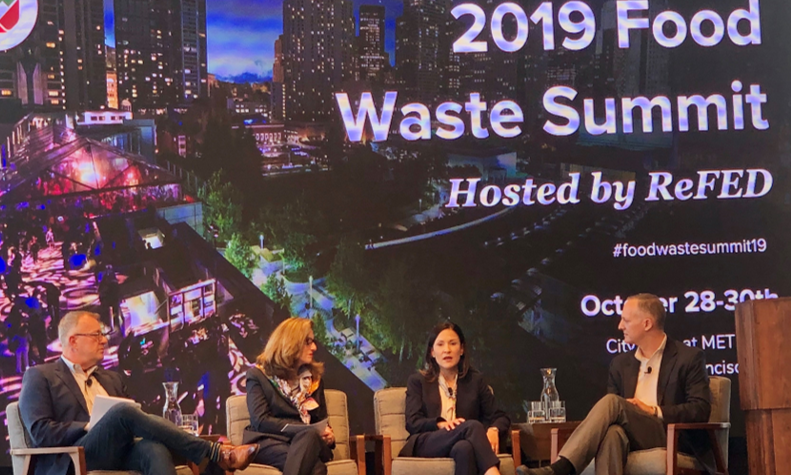Our Food Is a Gift From the Planet: A Gift to Be Treasured, Not Wasted
By Mary Jane Melendez | Chief Sustainability & Social Impact Officer; President, General Mills Foundation

Originally published on LinkedIn
Food has an intrinsic value to feed, nourish, heal, satisfy, and connect us. Food is a universal, human experience to be savored and cherished. It is best enjoyed and experienced when shared with others.
Despite the intrinsic power of food, sadly, more than 1/3 of the world’s food does not feed or nourish anyone. Instead, it comes to its end rotting in a landfill where it emits methane, a powerful greenhouse gas, into our atmosphere. When we waste food, we not only waste the substance that could have nourished our body and deepened the bonds of community, we waste the energy, water, nutrients, fuel, labor, money and love that went into growing, transporting and selling that food. What’s supremely ironic is that at the same time we waste all this precious food, more than 820 million people are hungry.
This week, I had the chance to speak at the ReFED Food Waste Summit in California. It was a gathering of thought leaders from across sectors who have a shared passion for regenerative food systems including food companies, investors, NGOs, governments and academics. I had the opportunity to highlight the successes and challenges we’ve lived at General Mills during the many years we’ve been on the journey to rescue good food from a bad end.
At General Mills, we know that food waste is a major social, environmental and economic challenge. It undermines food security, contributes to climate change, consumes water and other natural resources and adds costs to families, communities and businesses. Here are some of the ways we are taking action:
- In Our Operations: Food waste streams in our operations include ingredients lost during production, surplus generated if a product is unable to be sold for quality reasons, and liquid waste stream that is a dairy by-product from yogurt production (which we convert to energy using an anaerobic digester). We are making progress toward our zero-waste to-landfill targets at our production facilities. Ten facilities (20% of the global total) met our zero-waste to-landfill criteria in fiscal 2018.
- In Our Communities: As a founder of Feeding America and as a key partner with Global Foodbanking Network, we have a longstanding commitment to put surplus food to good use. In our most recent fiscal year, General Mills contributed cash and in-kind donations valued at more than $30 million to advance food recovery efforts. Those investments helped rescue more than four billion pounds of good food that otherwise would have gone to landfills, enabling three billion meals for the hungry. Saving that good food from a bad end helped avoid more than two billion pounds of greenhouse gases from being released into the atmosphere.
- In the Kitchen: General Mills is working to help educate consumers on ways to save food at home. More than 40% of food waste happens in consumers’ homes. In 2018, General Mills developed and launched the #Taste Not Waste campaign on bettycrocker.com helping consumers minimize food loss through creative recipes on how to use remaining produce and ingredients and educational resources on how to get smarter about using all of your food.
While the state of food waste on our planet is daunting, there is reason for hope. Solutions to ending food waste begin with each of us. Here are a few ways you can take action:
- It sounds simple but the best way to avoid food waste is through prevention. When grocery shopping, consider how much food you’re buying. Can you scale back on purchases or buy smaller portions?
- Love your leftovers! If you want to dress up your leftovers, remember that leftover cheeses, meats, veggies and even pastas go beautifully in a frittata.
- Store food properly. Keep herbs with their stems in a glass of water. Wrap cheese in wax paper, not plastic. Store berries in an aerated container in the fridge and don’t wash them until you’re ready to eat them.
- Don’t overserve meals. Portion size matters. Consider using small plates at dinner. It can help reduce food waste (and your waistline).
- Use your freezer: if you’ve made too much for dinner, freeze your leftovers. Those extra portions can make for a quick meal and less work later in the week.
Our food is a gift to be treasured and enjoyed, not wasted. It gives us life, energy and nourishment. Food connects us to each other and to the earth. It links us to our heritage, to traditions and to cultures. Most profoundly, it connects us to that deep place within ourselves that holds memories and meaning. Let’s each do our part to fully value and respect the gift of food by enjoying it, not wasting it.

